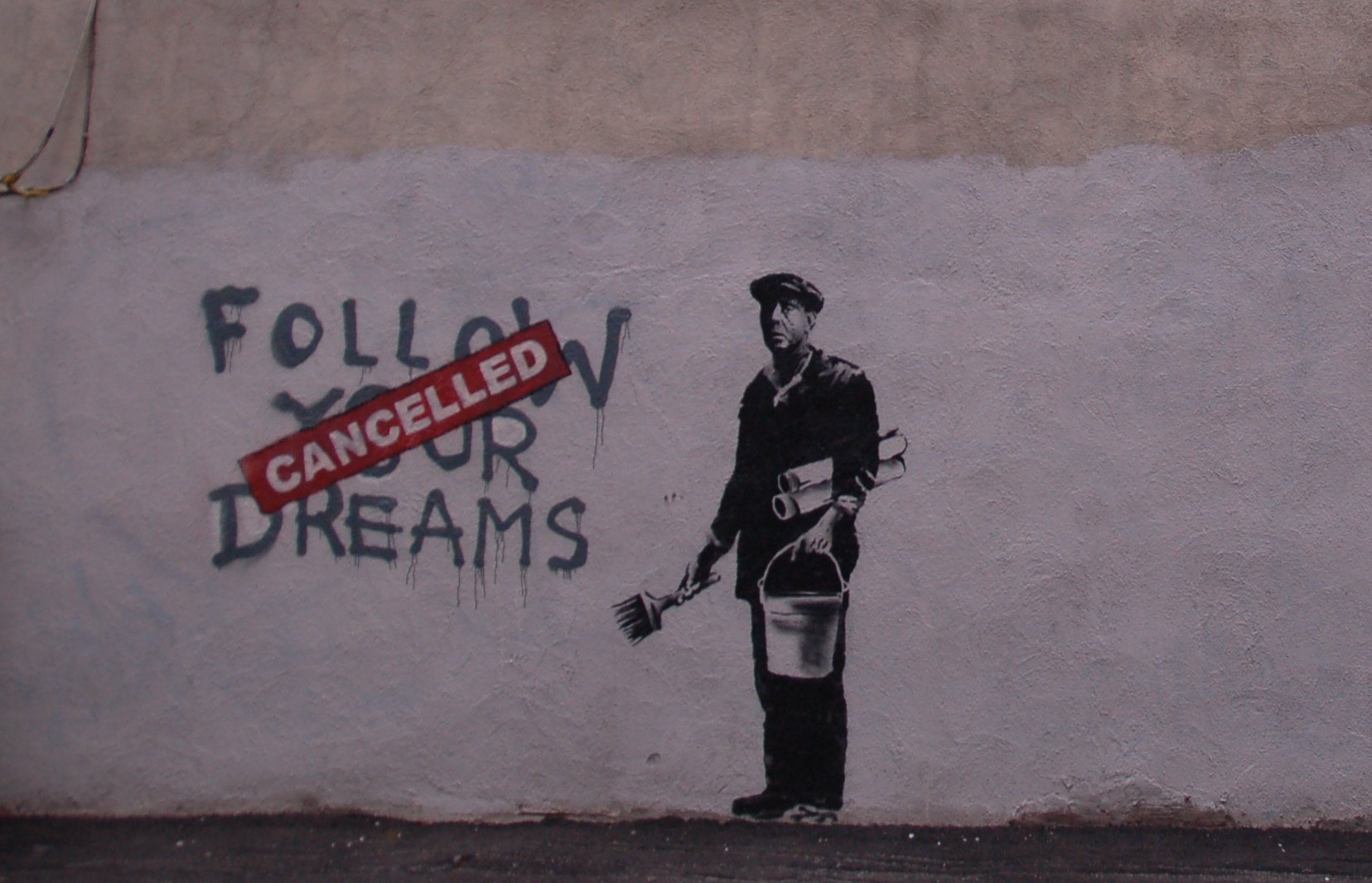
Photo: 'Banksy in Boston' Chris Devers (CC BY-NC-ND 2.0)
Theatre’s talent pipeline is “leaking”, peers’ report warns
A House of Lords inquiry raises concerns that young people from diverse backgrounds are being discouraged from entering careers in theatre, putting the sector’s future cultural and economic success at risk.
Theatres are facing a “leaking pipeline of talent”, witnesses have told a House of Lords Select Committee on Communications. This will undermine the future cultural and economic success of the industry, they said, unless action is taken.
In its new report, Skills for theatre: Developing the pipeline of talent, the Committee highlights concerns that funding cuts, education policy and inadequate careers advice are barriers to young people from regional, less affluent and culturally diverse backgrounds pursuing careers in theatre.
It notes fears “this trend will eventually have a profound effect on what ends up in West End Theatres, on Broadway and on our TV and cinema screens”.
The report summarises concerns expressed by 26 people and organisations who contributed oral and written evidence to its short inquiry into barriers facing young people entering the theatre industry. The inquiry, which was announced in March, heard from witnesses including Culture Minister Matt Hancock, Artistic Director of the Tricycle Theatre Indhu Rubasingham, and Director of Learning at the National Theatre Alice King-Farlow.
Due to the timescale for the unexpected general election, rather than analyse the evidence and develop conclusions and recommendations, the Committee has ended the inquiry by condensing the witness statements and highlighting “issues that merit further consideration”. This includes reflections on how the UK can “nurture and develop the talent needed to maintain the success of this industry”.
Unequal opportunity
The increasing dependence of the theatre sector on affluent parents who support their children’s engagement with theatre was cited as a primary concern. Witnesses pointed to superior arts opportunities in fee-paying schools compared with state schools, and some felt this was being fuelled by the introduction of the English Baccalaureate.
The outcome of this trend, they suggested, is a growing number of performers, directors and writers from wealthy backgrounds and the corresponding underrepresentation of those from Black, Asian and Middle Eastern communities.
The introduction of fees for further and higher education, they said, were dissuading parents, teachers and careers officers from encouraging young people from regional, less affluent, culturally diverse or less well-connected backgrounds to pursue a career in theatre.
Other barriers identified include:
- Perceptions that a career in theatre is insecure, with “low pay or no pay”
- Limited careers advice relating to jobs in the theatre
- Inadequate training routes in some technical and administrative areas.
Funding constraints
The concentration of theatre work in London, both on and off stage, was also noted as limiting opportunities.
Regional theatres and fringe theatres in London were recognised as opening doors to new talent, but witnesses reported that local authority funding cuts are forcing regional theatres to become “receiving houses rather than producing houses”.
Despite witnesses commending a commitment to diversity in the theatre sector itself – especially in the funded sector – they reported that public funding cuts in general are a significant barrier to investment in skills development.
Doubts were expressed that the Government’s apprenticeship schemes are appropriate for the creative sector, specifically theatre. There was “a strong appetite for a better apprenticeship scheme designed by and for the creative industries” as part of a “wider matrix of better training opportunities”.
Join the Discussion
You must be logged in to post a comment.